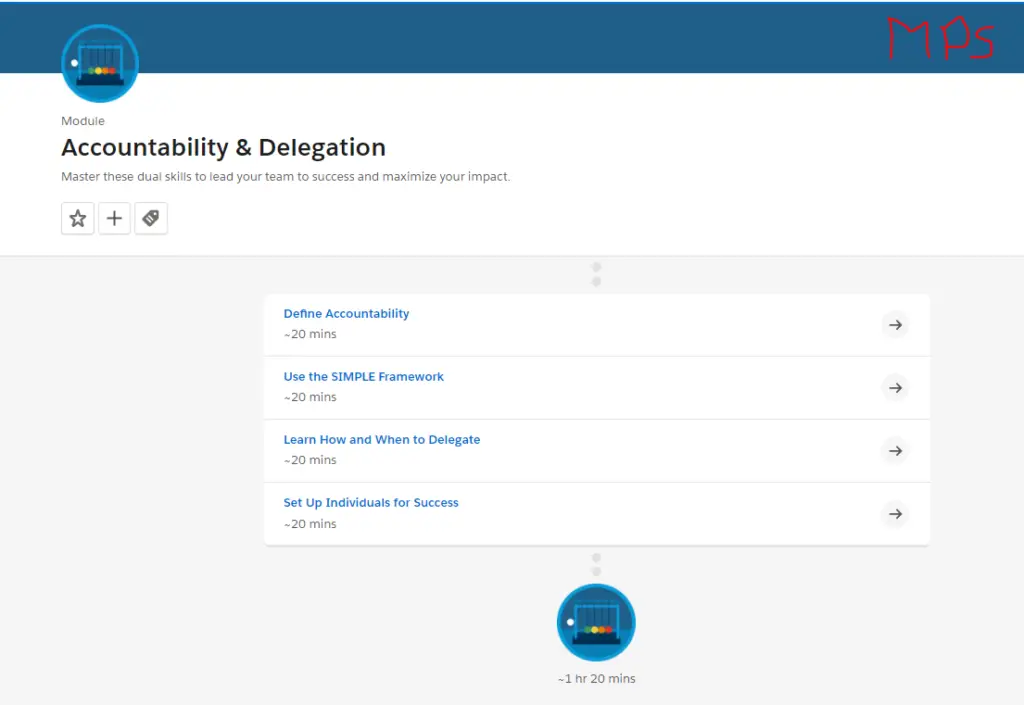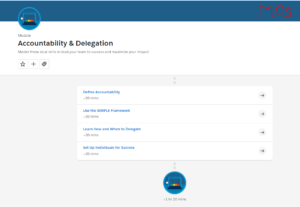Accountability and delegation are very important for entrepreneurs who want to build a successful business and an even more successful life. Both will help you get things done faster, better, and with less stress.
But how do you implement this in your business? The truth is that there aren’t a lot of tried and true methods for accountability and delegation. It’s always different between companies and individuals. However, there are some basic ideas that all leaders should keep in mind when implementing accountability and delegation into their business.

#1.Define Accountability
Here we will see the definition accountability and quizzes with answers below.
What is Accountability?
Accountability is a concept that we all understand, yet many of us fail to practice it. It’s safe to say that most of us have had experiences with people who take responsibility for their actions and those who refuse to accept any consequences for their actions. When it comes to business, holding people accountable for the work that they do can be a tricky thing.
Q1)What does accountability mean?
I)Taking ownership of your actions and responsibilities
II)Assigning blame when something goes wrong
III)Finding someone else to complete an assignment when you’ve missed the deadline
IV)Demonstrating your ability to be a great accountant
[bg_collapse view=”button-orange” color=”#4a4949″ expand_text=”Show Answers” collapse_text=”Close Answer” ]
I)Taking ownership of your actions and responsibilities
[/bg_collapse]
Q2)When you delay accountability conversations with underperforming reports, what is the effect on the rest of the team?
I)The team is unaffected if the problem doesn’t concern them.
II)The team is somewhat affected if they work directly with the underperforming co-worker.
III)The team is somewhat affected if they don’t interact with the underperforming co-worker.
IV)The team is highly affected because they feel burdened
[bg_collapse view=”button-orange” color=”#4a4949″ expand_text=”Show Answers” collapse_text=”Close Answer” ]
IV)The team is highly affected because they feel burdened
[/bg_collapse]
#2.Use the SIMPLE Framework
Q1)Which of the following points is important to align on when creating an execution plan?
I)Red flags
II)Social obligations
III)Current business trends
IV)Future direction of your team
[bg_collapse view=”button-orange” color=”#4a4949″ expand_text=”Show Answers” collapse_text=”Close Answer” ]
I)Red flags
[/bg_collapse]
Q2)When delegating responsibilities to your report, you say, “Great, we’ve agreed that you’ll send me the assignment on Friday.” What else should you include?
I)The format
II)A precise time you’re expecting it
III)An escalation plan
IV)All of the above
[bg_collapse view=”button-orange” color=”#4a4949″ expand_text=”Show Answers” collapse_text=”Close Answer” ]
IV)All of the above
[/bg_collapse]
Q3)When your report misses a deadline and is struggling with a task, the first thing to do to get the project back on track is:
I)Have a discussion about their mistakes
II)Let them draw their own execution plan
III)Shoulder more work yourself
IV)Ask other teammates to lend a hand
[bg_collapse view=”button-orange” color=”#4a4949″ expand_text=”Show Answers” collapse_text=”Close Answer” ]
IV)Ask other teammates to lend a hand
[/bg_collapse]
#3.Learn How and When to Delegate
Q1)What kind of task should you hand off to a novice team member to complete?
I)Smaller-scale tasks that they can own from end to end
II)A complex project with multiple stakeholders so they can expand their network
III)Projects due the following day to see how well they work under pressure
IV)A medium-size project where they can ask team members to take on responsibilities and note how they respond
[bg_collapse view=”button-orange” color=”#4a4949″ expand_text=”Show Answers” collapse_text=”Close Answer” ]
I)Smaller-scale tasks that they can own from end to end
[/bg_collapse]
Q2)Which question are you most likely to ask when delegating a task to a highly experienced employee?
I)”What’s your target timeline and outcome for the project?”
II)”What do you foresee being a potential stumbling block to the project?”
III)”What support do you need from me to be successful?”
IV)”When can I expect to see the finished product?”
[bg_collapse view=”button-orange” color=”#4a4949″ expand_text=”Show Answers” collapse_text=”Close Answer” ]
III)”What support do you need from me to be successful?”
[/bg_collapse]
Q3)You’ve decided on the deliverables and dates for your next big project. What are the final traits you use to match the responsibility to the report?
I)Intelligence and availability
II)Ability and willingness
III)Discipline and self-control
IV)Charm and good looks
[bg_collapse view=”button-orange” color=”#4a4949″ expand_text=”Show Answers” collapse_text=”Close Answer” ]
II)Ability and willingness
[/bg_collapse]
#4.Set Up Individuals for Success
Q1)When assigning a new project, what can you do to make the learning process easier for a new report?
I)Let them work on a project on their own
II)Establish a second in command whom they can go to with questions
III)Deliver high-level instructions and wait until the final deadline to check in again
IV)Give them difficult projects to see how resourceful they can be
[bg_collapse view=”button-orange” color=”#4a4949″ expand_text=”Show Answers” collapse_text=”Close Answer” ]
II)Establish a second in command whom they can go to with questions
[/bg_collapse]
Q2)Letting your reports do which of the following is an important part of the delegation process?
I)Experiment and learn from their mistakes
II)Work exclusively on the things they excel at
III)Find peers that they can delegate their responsibilities to
IV)Gather inputs from each member of your team before executing on the task
[bg_collapse view=”button-orange” color=”#4a4949″ expand_text=”Show Answers” collapse_text=”Close Answer” ]
I)Experiment and learn from their mistakes
[/bg_collapse]
Q3)What should you do if there is a gap between your expectations and the work completed at a check-in with your report?
I)Step in and show them how to do the work
II)Wait until your report raises the problem to you
III)Review any missteps and help your employee learn from them
IV)Authoritatively highlight each mistake and what you would have done if you were completing the project
[bg_collapse view=”button-orange” color=”#4a4949″ expand_text=”Show Answers” collapse_text=”Close Answer” ]
III)Review any missteps and help your employee learn from them
[/bg_collapse]
People also ask: Accountability and Delegation

1) Why is accountability important in delegation?
Accountability is important in delegation because it increases the likelihood of success. This will help the delegate follow through on what they are asked to do.
Accountability is where one takes responsibility for one’s behavior, actions, and performance. It’s about owning what you do and accepting the consequences if things go wrong. Delegation without accountability can lead to failure or disappointment.
If someone entrusts you with something, they are responsible for it; If something goes wrong in that action, they should also be held accountable for it. This means that delegation should always come with some form of accountability, such as rewards or punishments if certain tasks are not completed by a set date or time period.
2) What are the 4 pillars of accountability?
Accountability is the degree to which people are answerable for their actions. It is the obligation or willingness to accept responsibility or to account for actions taken or decisions made. The four pillars of accountability are:
- -Transparency
- -Accountability
- -Responsibility
- -Integrity
3) What is the relationship between accountability and delegation?
Accountability can occur when the person performing the delegated task realizes how the person giving the task is controlled. This control can be direct or indirect.
Both delegation control and accountability are important in the workplace environment. Accountability is an important part of delegating a task to a person, as it ensures that they will do their best to complete the task successfully. Control over how delegated work is carried out shows that accountability is established. When these two concepts exist together, they can make any workplace environment more productive and successful.
4) What are professional responsibility and accountability?
Professional responsibility and liability are two concepts that can be difficult to understand in their full complexity. These concepts can be broadly defined as part of a professional’s duties and responsibilities. They include, but are not limited to, ethical conduct and avoiding conflicts of interest.
Accountability is a broad term that refers to responsibility or the willingness to accept responsibility for one’s actions or decisions. When we take responsibility for our actions, we accept the consequences that come with them because we believe they were the best decisions at the time. Accountability is one of the key components of fairness because it requires people to take credit when they do well and acknowledge when they do not perform well.
Accountability is a complex word that has many different meanings depending on who you ask. In general, responsibility can be defined as being morally accountable for one’s actions or decisions, facing punishment, or having to pay compensation.
5) Can accountability be delegated?
Accountability can be delegated in two ways and that is:
- – Delegating the responsibility to the individual and giving them the power to make decisions.
- – Delegate to a specific person or group.
It can be seen as a form of delegation when an individual is given the power to make decisions, but at the same time, accountability cannot be fully delegated.
6) What is the single point of accountability?
Accountability is a key concept in healthcare and having a single point of accountability is important. To work most efficiently, healthcare providers need to identify who is responsible for what.
In this section, we’ll discuss the importance of a single point of accountability in healthcare and how it benefits everyone.
This will allow doctors and nurses to focus on their respective tasks without having to worry about diagnosing or treating patients they are not qualified for.
This improves the efficiency of the overall system by identifying urgency levels and reducing duplication, helping patients receive treatment faster.
7) Is accountability the same as responsibility?
This question is a fundamental issue in political theory and ethics.
The meaning of responsibility has been debated by philosophers for centuries, with no general agreement on a single definition. Simply put, it is an obligation to suffer the consequences of their actions. Accountability is the process of determining whether or not someone was responsible for a bad event. It is often used to help determine why something went wrong and who should be held accountable.
8) What are the 3 elements of delegation?
Delegation is the process of assigning tasks to someone else. It can be done formally or informally. The delegation includes three main elements and that is given below:
- 1) Identifying a task
- 2) Assigning it to someone else
- 3) Monitoring the person you have assigned the task
9) What are delegation and its importance?
Delegation is one of the most important managerial skills. It is the process of assigning specific tasks to colleagues, subordinates, or other individuals who are not in the same direct chain of command.
The essence of delegation is to assign a task to someone else so that someone else can complete it. This is not necessarily done with the intention of avoiding doing the work yourself, but can also be done to increase efficiency or capacity by spreading responsibilities for a project or activity.
10) What is the delegation process?
Delegation process is the process in which one person assigns specific tasks to others.
There are various ways in which delegation can be implemented. Some of these are when the group has individual representatives, when they delegate to individuals, when they assign tasks, and when they provide guidance.
Delegation is essential because it allows for more efficiency and productivity. This allows people to work in their strong suits. When delegating tasks, you should have a clear idea of what needs to be accomplished in terms of deadlines and the quality of work you desire.
11) What are the 5 steps of delegation?
Delegation is the process of assigning tasks to subordinates. By delegating tasks, managers can focus on their strengths and prioritize their time more efficiently. The five steps are as follows:
- 1) Planning: consider what needs to be done, identify the right person for the task, and determine what should be delegated
- 2) Competency matching with tasks: Allocate tasks that match the talents or skills of employees
- 3) Monitor progress: Periodically check how the work is progressing
- 4) Reward employee work: Recognize employees for doing a good job
- 5) Re-delegate if needed: Start delegating if you feel like you need help
12) Can accountability be delegated in nursing?
Responsibilities can be delegated to nursing. Accountability is based on ethical standards and the nursing process, which is a work process developed by nurses to improve care and ensure quality. The nursing process defines the steps nurses take to accomplish their responsibilities and is organized into these steps: assessment, diagnosis, planning, intervention, and evaluation/reevaluation.
The purpose of the nursing process is to organize all the steps nurses must take when providing patient care to ensure quality patient care. It does this by specifying certain actions or procedures or what tools should be used.
13) How do leaders ensure accountability?
Leaders need to ensure that their team members are following the company’s vision and mission. They must ensure that all employees are working towards a common goal.
The most important step in holding others accountable is transparency. Leaders should provide open dialogue with employees about their progress, where they can make mistakes without fear of retaliation from management.
Leaders must also allow their team members to create a culture that fosters accountability and trust among employees.
14) What are the types of delegation?
Depending on the type of delegation, there are different ways of delegating. The best way is to delegate work that is given below:
- 1) routine;
- 2) low-skilled;
- 3) with little supervision; and
- 4) with little feedback needed.
15) What are the 7 pillars of accountability?
Accountability is an essential part of today’s society. It keeps us on the right path and it keeps us in control. We need to be accountable for our actions, our thoughts, and our behavior.
Accountability is not just something we want, it should be something we demand from others.
16) What are the two most critical components of accountability?
The two most critical components of accountability are given below:
- 1. Accountability requires the ability to identify who is accountable for what
- 2. Accountability requires being able to clearly define what is being held accountable for.
The first component, is the ability to identify who is accountable for what is essential for making sure that an organization is working efficiently and effectively. The second component, the ability to define what is being held accountable for, ensures that people are held responsible for their actions.
17) What are the domains of accountability?
The term “accountability” has been used in many contexts. It can be broken down into three different domains:
- The domain of law, which is applicable to governments and public institutions
- The domain of management, which is applicable to private institutions
- The domain of ethics, which includes personal accountability.
Human beings are accountable for their work in the domains of law and ethics. Corporations are accountable for their work in the domain of management. The context will determine what type of accountability is appropriate.
18) what is Salesforce Trailhead?
Salesforce Trailhead is service based website, where you can learn to design application without of good knowledge of coding skills. It’s a free learning platform and Its help the developer to migrate from Salesforce Classic to Salesforce lighting experience.
Conclusion of Accountability and Delegation
In conclusion, accountability and delegation aid in developing a successful business. Accountability requires that there be someone who holds you to your word and keeps an eye on your progress. Delegation allows you to focus on the tasks that are important while delegating the rest to others. Be sure to implement these two concepts into your business if you want it to succeed.
Learn More:
- General Course: Blockchain Basics, Bitcoin, Cryptocurrency, Technology
- General Courses: Culture Of Feedback, Types, Benefit, Important
- General Courses: Cyber Resilience
- General Courses: Demo Storytelling
- General Course: Digital Banking Basics-MPS
- General Courses: Demo Delivery Essentials
- General Courses: Google Analytics Basics
- General Courses: Great Management
- Module: Custom Metadata Types Basics
- Module: Apex Metadata API
- Module: Git And GitHub Basics
- Module: Strategies For Big Data Architecture
- Module: Heroku Architecture Designer Certification Maintenance
